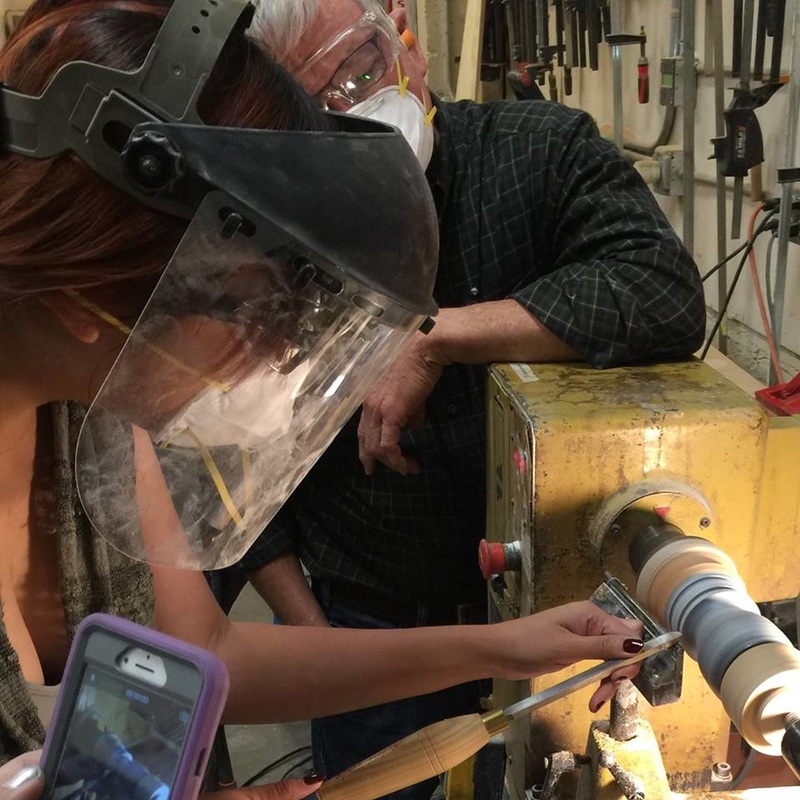There was also this idea of 'making an impact,' of mentoring, of making the world better by making companies work better, of leveraging my role in a large firm to change the world at scale in subtle but meaningful ways. I like to think that I did.
But I couldn't always see the impact. It was sometimes too distributed, too slow, with too many hands making the pie and the largest ones capturing most of it.
I've had this yearning to make things that were evident, so evident I didn't have to throw a narrative blanket over it to convince myself that an impact had been made. We signed up for a lifetime membership at TechShop, then an investment in our local TechShop, because it was so satisfying working with wood and metal and laser cutters and 3D printers. To see the tangible outcome of the work of my hands has helped me (start to) shift my identity towards the 'maker' end of a continuum. I've been on the 'strategist' end of that axis so long that it feels very strange.
It's given me a renewed appreciation for how hard it is to make things, and that the sum total of all we see around us is amazing in the implied complexity of all these coordinated human endeavors. I'm not a great maker, I'm not a manufacturing engineer, but I think I could be if I decided to invest myself in that direction, and that thought is new.
I've also come to understand more viscerally that DIY - at least the way it has been and to a large degree continues to be - is not economically efficient. I'll make a loose directional statement here: DIY is not cheaper, not better, and not faster. Then why DIY? Maybe let me rephrase: DIY is not cheaper unless it circumvents a resource constraint that outweighs the additional labor costs; not better unless you synonymize 'handmade' with 'better quality' or (rare) go to a true master artisan wizened with experience; and not faster unless your local networks of exchange are not [working/efficient/at scale]. Most of the time, DIY is not efficient though. As a result, most DIY-ers don't make enough.
I wish it were efficient though, because I want to envision a world where we can do good work, earn the proportional value created, and see the tangible impact that we made - efficiently. I know that I create more value for human beings when I'm in a large organization than when I'm working with my hands at TechShop. It's a difference of scale, better coordination of complex human endeavors, and investments in infrastructure and knowledge-culture that pay back over time in efficiency and improvement.
Traditional large organizations tend to disproportionately distribute value to financial capital (vs. human capital). I wonder why, with technology, that has to continue to be the case. Scale and coordination and investments can be solved in other ways - at least I can peer ahead and see the far day when they will be. I'm excited about the blockchain, the cloud, generally the variabilizing of infrastructure costs, the growing assortment of talent-oriented startups, the possibilities in the next-generation of collaboration tools. Unless the apocalypse comes, the next golden age lies ahead. This time, it's different? Yes and no. As Murray Gell-Mann has said, the world is both regular and random.




 RSS Feed
RSS Feed